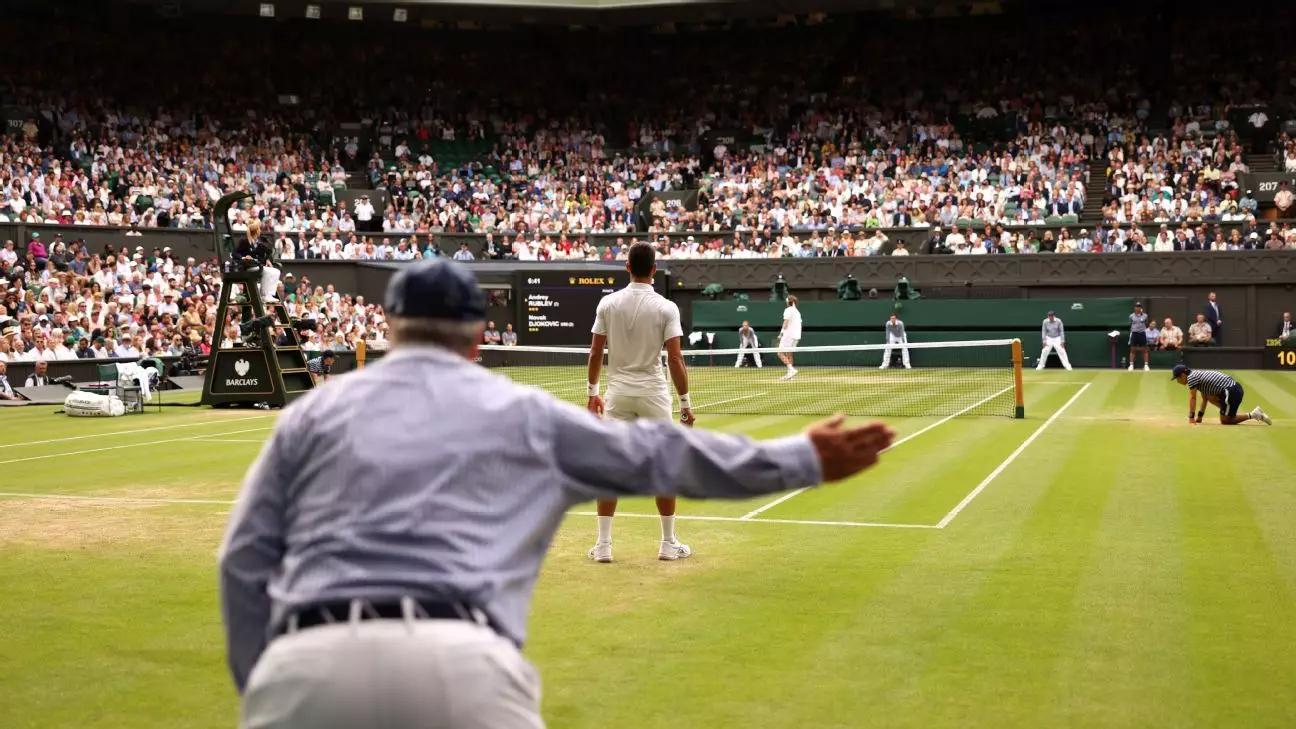The All England Club has made a landmark decision to eliminate line judges at Wimbledon, ushering in a new era of officiating driven by artificial intelligence. This move marks a significant departure from the tournament’s 147-year history of human line judging, as electronically-assisted line-calling will be implemented across all 18 courts during the next championships. This transformation is not merely a trend but a calculated response to advancements in technology and player expectations, reflecting a broader shift in the approach to sports officiating worldwide.
In recent years, professional tennis has seen the gradual integration of technology to enhance the accuracy of line calls. The US Open was one of the pioneers in adopting the Hawk-Eye Live system in its 2020 tournament, which has progressively gained traction on the ATP tour. The decision at Wimbledon to forgo human line judges altogether represents the culmination of extensive testing and evaluation, surpassing prior innovations by fully embracing an automated approach. The All England Club has emphasized that this development is not hastily implemented but rather a thoughtfully considered step taken after thorough consultations and evaluations.
Implications for Players and Fans
While this technical refinement is poised to deliver improved accuracy, it also raises questions about the future role of human officials in tennis. Players accustomed to the presence of line judges may face an adjustment period as they adapt to a new environment where the challenge system will be omitted, replaced entirely by automated voice calls for line decisions. This shift will provide players with the same conditions they have encountered in other tournaments, facilitating a level of consistency across the global circuit. For fans, it promises to enhance the viewing experience with clearer, faster calls and reduced disruptions.
Sally Bolton, the CEO of the All England Club, emphasized the importance of balancing tradition with innovation throughout this transition. Recognizing the significant role that line umpires have historically played in the tournament’s officiating framework, Bolton extended her gratitude for their invaluable contributions. This acknowledgment highlights the challenges faced by sports organizations as they navigate the implementation of advanced technology while honoring the legacy and emotional fabric of the sport.
In addition to the revolutionary line-calling system, the All England Club has announced a revised schedule for the finals at next year’s tournament. The men’s and women’s singles finals will start later in the day, with provisional timings set for 4 p.m. local time. This adjustment aims to maximize viewership and attendance, aligning more closely with fan preferences and habits.
Wimbledon’s shift towards AI-driven line calling is not merely about technological advancement; it is indicative of a broader transformation in how traditional sports embrace modern solutions. As tennis continues to adapt to evolving expectations, this bold reimagining of officiating could set a precedent for other sports grappling with similar decisions. The challenge will lie in ensuring that the spirit of the game endures amidst rapid changes, balancing precision with the essence of sporting tradition.

